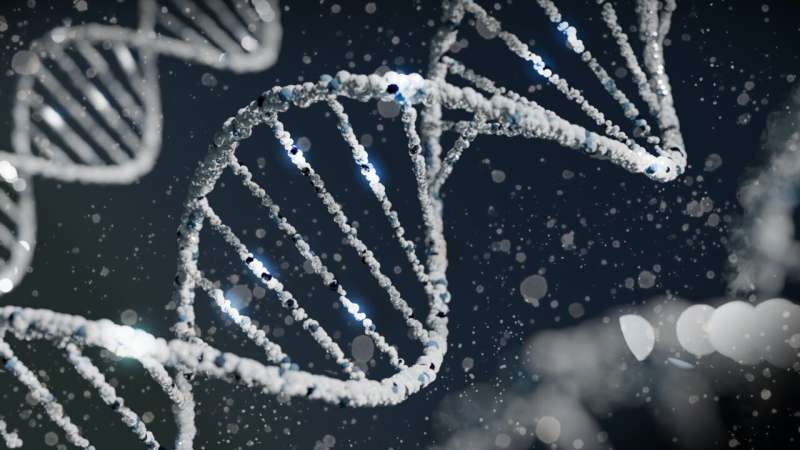This article has been reviewed according to Science X's editorial process and policies. Editors have highlighted the following attributes while ensuring the content's credibility:
fact-checked
peer-reviewed publication
trusted source
proofread
Gene linked to learning difficulties found to have direct impact on learning and memory

A gene previously linked to intellectual disability has been found to regulate learning and memory in mice. The gene, called KDM5B has previously been linked to some intellectual disability disorders and autism. In the general population, some variants are also associated with reduced brain function, although not sufficient to cause an overt disability or behavioral symptoms.
Now, researchers at King's College London, the University of Exeter and the University of California Irvine have found that reduced function of the gene in the brain results in loss of learning ability and memory and a reduction in the brain's ability to strengthen connections between neurons, which is key in the formation of memories.
The study, titled "The intellectual disability risk gene Kdm5b regulates long term memory consolidation in the hippocampus," is published in the Journal of Neuroscience.
The team's new mouse study describes how mice bred without a fully functional KDM5B gene have worse learning and memory abilities. In order to rule out the possibility that the effect may have been caused by an impact on brain development, the researchers also reduced the amount of this gene in a separate group of adult mice, in the hippocampus, a brain region responsible for memory.
They found that reduced gene function resulted in epileptic seizures in some mice and a deterioration of their learning and memory. Laboratory experiments suggested that the strengthening of connections between neurons during memory formation was reduced.
Professor Albert Basson, whose research group began the work at King's College London and has since moved to the University of Exeter, said, "Memory and the ability to learn are fundamental to our intellectual potential, yet we still have a lot to learn about the underpinning mechanisms. For more than a decade, the KDM5B gene has been linked to autism and some forms of intellectual disability, but a mutation in this gene alone is not always sufficient to cause these conditions, so it hasn't been studied in detail.
"Our work shows that KDM5B is important for learning and memory and provides new insight into the fundamental mechanisms of memory and learning, which is crucial on the pathway to finding new ways to improve these functions."
KDM5B can modify the structure of the genetic material in our cells which determines whether genes necessary for brain development or function are expressed at the correct amount at the right time.
Dr. Leticia Peres-Sisquez who performed the research at King's College London, said, "We set out to investigate whether KDM5B's ability to modify genetic material has a direct impact on learning and memory. We've discovered that the gene has a direct impact on learning and memory—which is distinct from any effect during brain development. This gene will now be of much greater interest to researchers on the quest for new treatments for conditions including autism, and other intellectual disability disorders."
More information: Leticia Perez-Sisques et al, The intellectual disability risk geneKdm5bregulates long term memory consolidation in the hippocampus, The Journal of Neuroscience (2024). DOI: 10.1523/JNEUROSCI.1544-23.2024



















